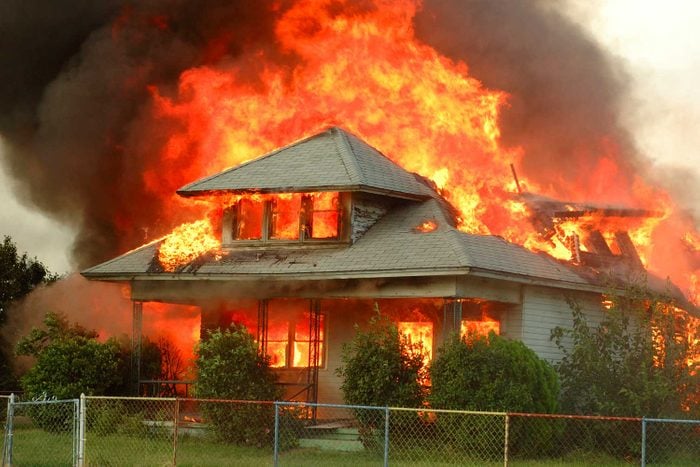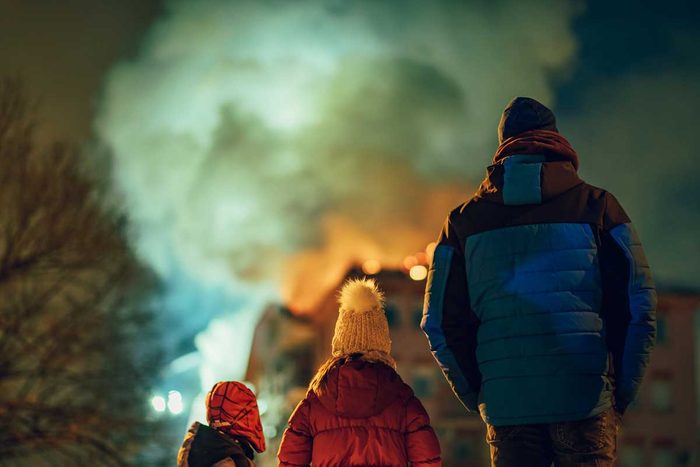
Get to Safety
Obviously, your first priority is getting yourself and your family out of the house. The Red Cross says it’s OK to try to grab your pets, but don’t endanger yourself by delaying too long.
Then:
- Distance yourself from the house to avoid falling debris, noxious fumes and gas/propane explosions.
- Call 911.
- Give first aid if needed, covering burns to reduce the chance of further injury or infection.
- Get injured people and pets immediate medical attention.
- Comfort children and pets frequently.
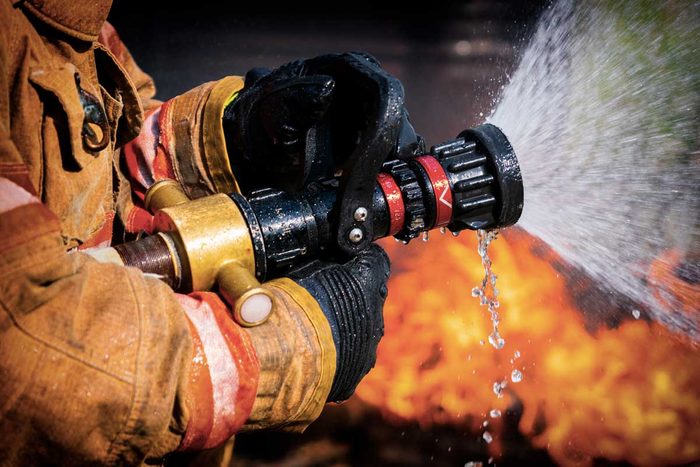
Report the Incident
Once you’re safe and called 911, contact others:
- Let family and friends know you’re OK. If you don’t have family nearby, contact friends. It’s good to have emotional support during this time.
- Make sure the fire and police departments know you’re safe and accounted for, so they’re not wasting resources or endangering lives searching for you.
- Contact your homeowner’s insurance company to start the claims process. Also ask if they can provide immediate help with lodging and living expenses until you can return home, as well as put you in touch with a fire and smoke damage restoration company.
- Contact your mortgage lender and/or landlord.
- Call a local disaster relief service or charity like the Red Cross or Salvation Army for help finding food, clothing, medicine and lodging.
- Contact your credit card companies to report cards lost in the fire.
- You may also want to contact your attorney, especially if you lack insurance, or if there are unusual circumstances surrounding the fire.
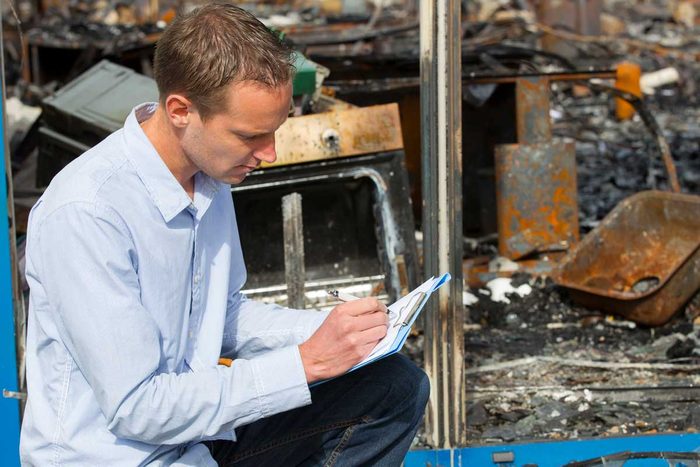
Save Your Paperwork
For insurance and tax purposes:
- Keep all your receipts. Many insurance companies will reimburse you for expenses like lodging, food and transportation.
- Keep written copies of every agreement for restoration and other contracts.
- Get a copy of the fire report from the fire department.
- Designate a folder on your computer or in your email for all your digital receipts. Make a habit of putting paper receipts in an envelope, plus take photos of them so they’re available digitally as well.
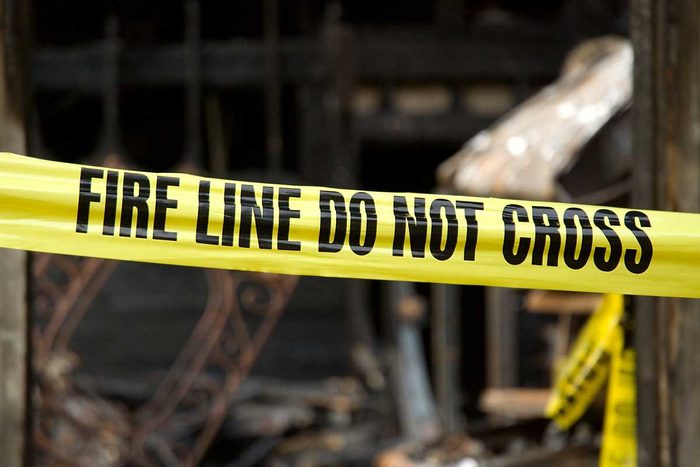
Don’t Re-Enter the Structure
Stay out of fire-damaged homes until local authorities, like the fire department, say it’s safe to re-enter.
- Don’t cut or walk past colored tape on doors or windows, or color-coded signs placed on the home by building inspectors, until they give you authorization to do so. This is for your own safety. A burned structure contains many hazards — hidden structural instability in roofs and floors; toxic fumes and chemicals; even hotspots that can reignite.
- Stay out of any building with water around it.
- Keep away from loose or dangling power lines. Report them immediately to the power company.
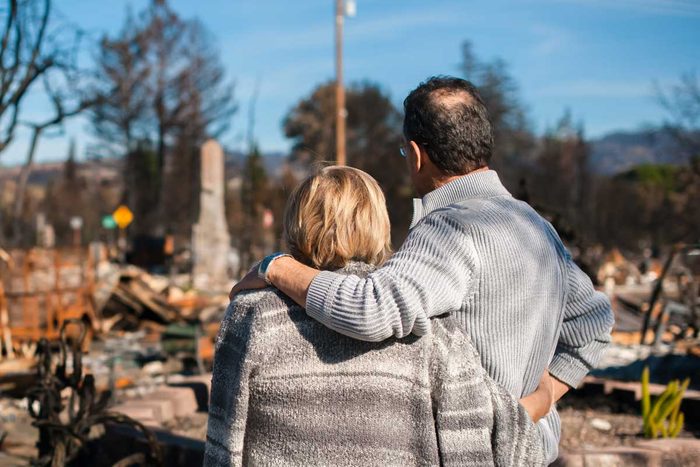
Leave the Kids Behind
When you first go back to inspect your home after a fire, leave children with a friend or relative. “The site may be unsafe for children, and seeing the damage firsthand may upset them and cause long-term effects, including nightmares,” says Stephanie Fox, a national media lead for the American Red Cross.
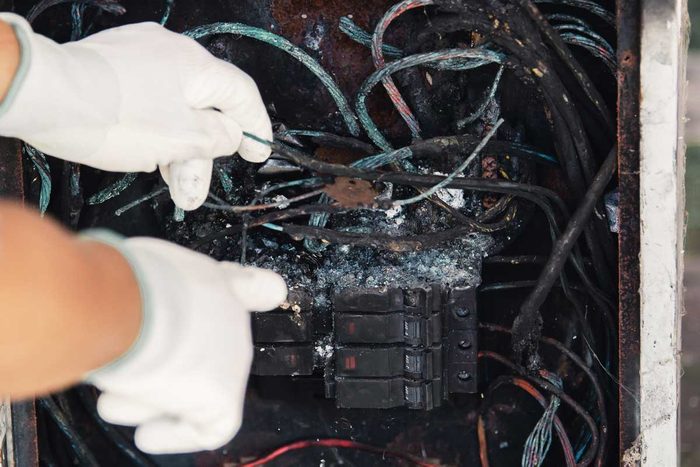
Conduct an Inspection
Once you’re given the all-clear to reenter your property, it’s still wise to be cautious.
- Pay special attention to the utilities, looking out for loose power lines and damaged gas lines. If you smell gas/propane or hear a hissing noise, leave the property immediately and call the fire department after you’re safely away from the area.
- If you see sparks, broken or frayed wires, or if you smell hot insulation, turn off the electricity at the main electrical panel, Fox says.
- Check for foundation cracks and missing support beams. Have a building inspector or contractor check out the structure before you enter.
- Do not discard damaged goods until after you’ve done an inventory. That will simplify your insurance claim.
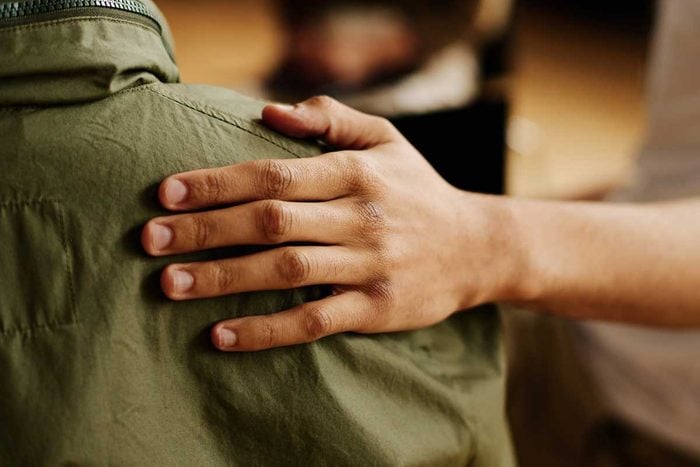
Tend to Your Mental and Emotional Health
“When we experience a disaster or other stressful life event, we can have a variety of reactions, all of which can be common responses to difficult situations,” says Fox.
These reactions can include:
- Feeling physically and mentally drained;
- Having difficulty making decisions or staying focused on topics;
- Becoming easily frustrated;
- Arguing more with family and friends;
- Feeling tired, sad, numb, lonely or worried;
- Experiencing changes in appetite or sleep patterns.
Most of the time, these are temporary reactions, and it’s healthy to accept them. To prevent yourself from being overwhelmed, try to focus on short-term accomplishments and goals, taking the process one step at a time.
Especially keep an eye on your children’s emotional state. “When disaster strikes, a child’s view of the world as a safe and predictable place is temporarily lost,” says Fox. “Children of different ages react in different ways to trauma, but how parents and other adults react following any traumatic event can help children recover more quickly and more completely.”
Your local Red Cross can give you more information about helping children and yourself cope with disaster and trauma.
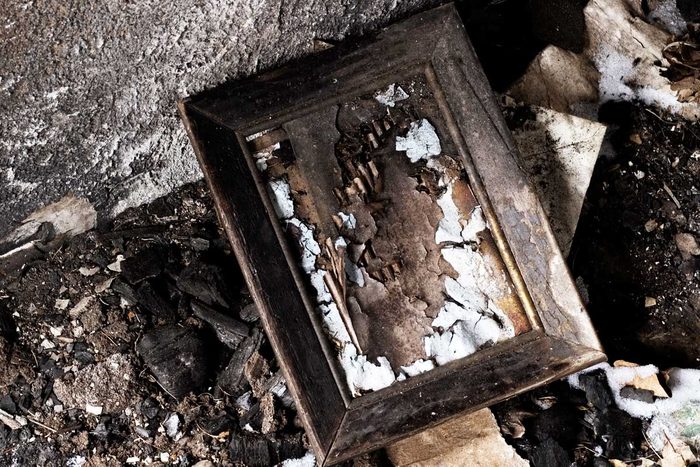
Figure Out What’s Salvageable
The insurance company will probably send an adjuster to determine if your home can be fixed, or if it needs to be leveled and rebuilt. If it’s the former, hire a professional fire damage cleanup company to clear out everything ruined by heat, smoke, soot and water. Make sure to coordinate this with your insurance company.
Then, once you’re allowed to reenter your property:
- Focus on retrieving salvageable valuables and paperwork, like birth certificates and medical records.
- Don’t take any consumables, like cosmetics, food or medications, because heat might have made them dangerous. But do take your prescription bottles/packaging, so you can get them replaced.
- Make a list of your damaged and undamaged possessions for the insurance company. The salvage company can also help you find and retrieve savable items.
- Thoroughly clean all items you’re keeping. Consider having them professionally cleaned.
- Find a safe place to store your salvaged belongings, like a storage unit.
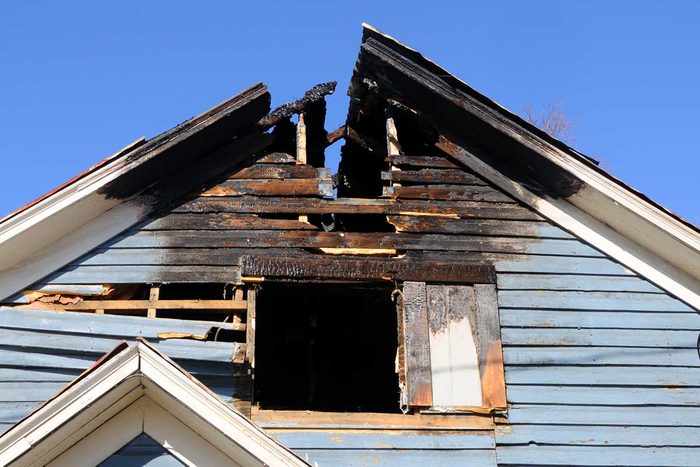
Restore or Rebuild Your Home
If your home is salvageable, the next steps are:
- Secure it from vandalism by covering broken windows and other entry points with plywood.
- Acquire necessary building permits.
- Focus first on structural repairs, like trusses, joists and framing.
- Hire a licensed electrician to inspect the entire electrical system. You’ll probably need a new breaker box, at minimum.
- Clean and repair fire damage, which might include air ducts, drywall and soot residue.
- Don’t forget to document the process and save your receipts.
If your home needs to be razed and rebuilt, the next steps are:
- Decide if you want to rebuild. Some insurance companies will let you use your payout check to buy a different home.
- Either way, you’ll still need to clean up the lot, removing debris and anything left of the structure. There are companies that specialize in this.
- If you do rebuild, the process from here on out is similar to building a new home. You can work with an architect or contractor to design a new home that fits your needs. Consider a few upgrades, too, like a sprinkler system, passive energy efficient designs and greener building materials.

